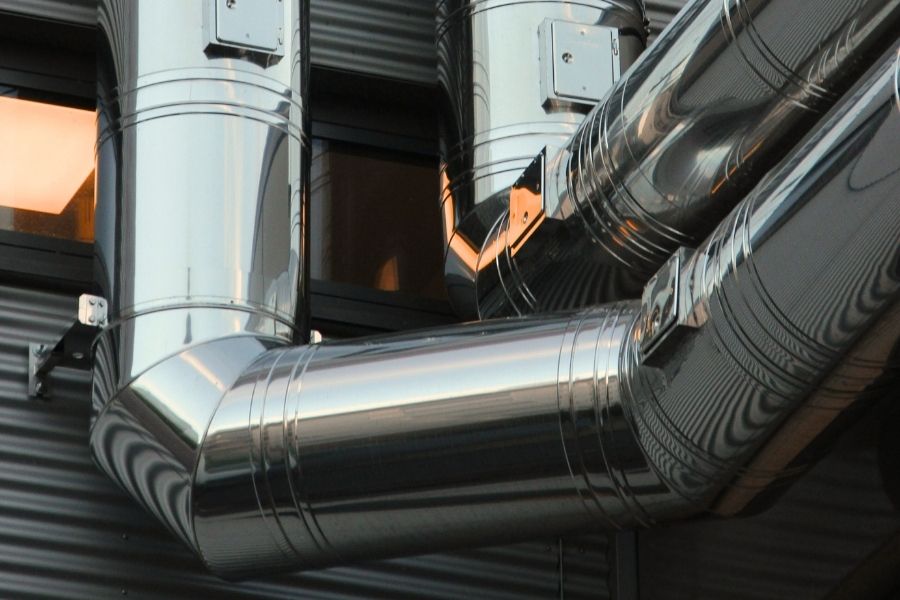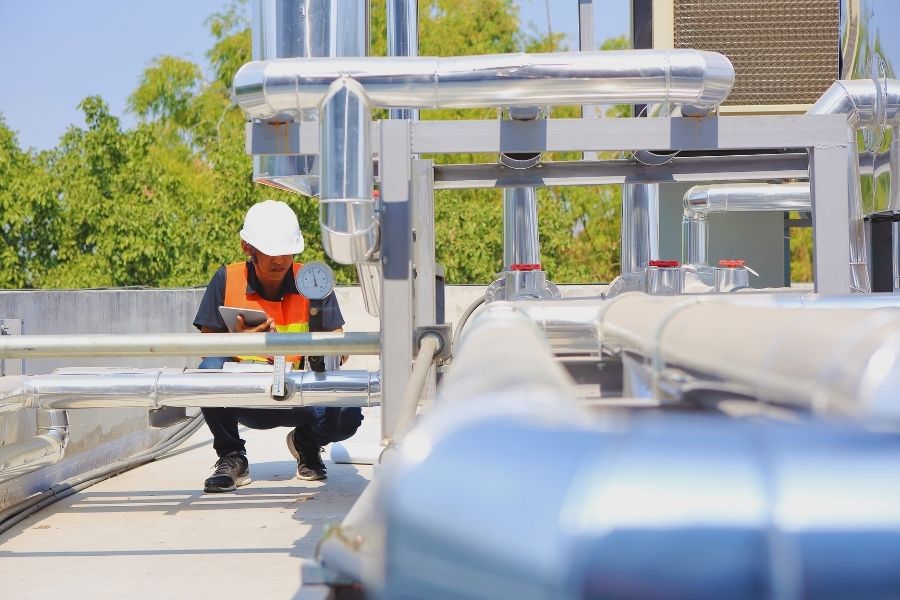Did you know that even a minor fault in a pressure system can escalate into significant downtime, soaring energy costs, or worse, a serious compliance breach? Many facilities managers overlook these vital systems until a problem arises, but proactive management is the key to avoiding unnecessary risks and costs.

Don’t Let Pressure Systems Become a Pressure Point in Your Facility
Pressure systems are the lifeblood of many building operations, ensuring heating, cooling, and other essential processes run smoothly. Yet, these systems often operate in the background, becoming invisible until something goes wrong. Inefficiencies, left unchecked, can lead to rising energy costs, frequent repairs, and non-compliance with critical safety standards.
Pressure systems are at the core of many building operations, spanning heating and cooling, refrigeration, HVAC, fire suppression, and other critical applications. These systems rely on key components such as chillers, boilers, air-sourced pumps, water tanks, and a wide range of plant equipment. Even minor inefficiencies or faults can escalate into significant disruptions, driving up energy costs, increasing repair demands, and impacting compliance with safety standards.
Proper maintenance of pressure systems is not just good practice—it’s a legal requirement under regulations like the Pressure Systems Safety Regulations 2000 (PSSR). Adhering to these regulations is crucial to avoid significant fines and penalties. Non-compliance can result in fines exceeding £20,000 in magistrates' courts or potentially unlimited fines in higher courts (ISI Safety).

Regular maintenance ensures systems meet all safety standards and operational limits, protecting facilities from costly legal repercussions while promoting operational efficiency. For more information on how preventive maintenance can help you stay compliant and reduce costs, check out our article: Preventive Maintenance: Why It Matters for Compliance and Costs.
Did you know? Regular maintenance can reduce overall maintenance costs by 12-18% compared to reactive maintenance strategies. By addressing minor issues before they escalate, facilities can avoid costly emergency repairs and downtime, which can be particularly disruptive in office environments (Hydro Quip).
Key considerations include:
Energy efficiency: Faulty systems can waste up to 30% of their energy, leading to inflated operational costs.
Safety compliance: Non-compliance with PSSR or Building Regulations Part L 2021 can result in penalties, legal action, or increased insurance premiums.
Equipment longevity: Neglecting maintenance accelerates wear and tear, requiring costly replacements earlier than anticipated.
To assist you in maintaining compliance and ensuring the efficient operation of your pressure systems, we've developed a comprehensive Pressure System Compliance Checklist. This resource outlines the essential steps and considerations for regular maintenance, helping you stay ahead of potential issues and adhere to safety regulations.
Inefficient pressure systems, such as boilers and air compressors, can waste up to 30% of energy. By implementing a regular maintenance schedule, facilities can significantly improve energy efficiency, leading to notable savings on utility bills. For instance, a well-maintained boiler can operate at 10-25% better efficiency than a neglected one (KW Design, Allianz Engineering).
Key areas of inefficiency include:

Karsons Consulting is your trusted partner in mitigating risks and enhancing system reliability and efficiency. We take a proactive, personalised approach to pressure system management, ensuring your operations remain efficient, compliant, and cost-effective.
Want to learn more about staying compliant with PSSR? See our Guide to PSSR 2000 Compliance for Facilities Managers.
By partnering with Karsons Consulting, facilities managers gain peace of mind knowing their systems are energy-efficient and compliant. For Landlords, we help safeguard properties from financial penalties and operational downtime, ensuring long-term tenant satisfaction and ROI.
Pressure system inefficiencies can seem like small issues—until they aren't. Don’t wait for costs to mount or compliance issues to arise.
info@karsonsconsulting.com | 020 3282 7605
Let Karsons Consulting help you turn your pressure systems into models of efficiency, compliance, and operational excellence.
Frequently Asked Questions About Pressure Systems Compliance
1. What is the typical inspection frequency for pressure systems?
Under the Pressure Systems Safety Regulations (PSSR) 2000, the frequency of inspections depends on the type of equipment and operating conditions. A Written Scheme of Examination (WSE) is required, detailing specific timelines. Typically:
Consult a professional like Karsons Consulting to establish an inspection plan tailored to your systems.
2. How do I know if my system is compliant with PSSR 2000?
Compliance with PSSR requires:
A thorough audit by Karsons Consulting ensures your systems meet these requirements while optimising performance.
3. What are the warning signs of system inefficiency?
Common red flags include:
Early intervention is crucial to prevent costly breakdowns. Schedule a system health check to identify and address inefficiencies.
4. What is a Written Scheme of Examination (WSE), and why is it important?
A Written Scheme of Examination (WSE) is a legally required document under the Pressure Systems Safety Regulations (PSSR) 2000. It outlines the components of a pressure system that require regular examination, inspection intervals, and the procedures to follow. The WSE ensures that critical parts of the system are safe and functioning within design limits, reducing the risk of failure. Karsons Consulting can assist in creating or reviewing your WSE to ensure full compliance and operational safety.
5. Can pressure systems contribute to energy inefficiency in buildings?
Yes, poorly maintained pressure systems can significantly reduce energy efficiency. Issues such as leaks, faulty valves, or aging components can lead to increased energy consumption, higher utility costs, and reduced system performance. Regular inspections and proactive maintenance can optimise energy usage, prevent unnecessary waste, and lower operating expenses. Contact Karsons Consulting to learn how we can help improve your system’s energy efficiency.
Karsons Consulting are members of the Chartered Institute of Building Services Engineers, The Association of Consultancy and Engineering, British Institute of Facilities Managers and the Building Services Research and Information Association.